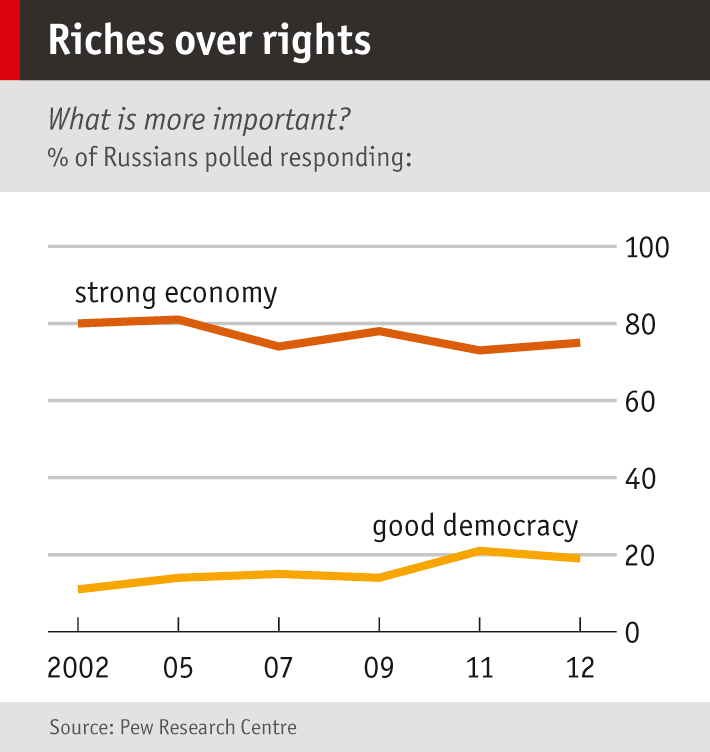Direct Democracy in Europe: Developments and Prospects (Direct Democracy in Modern Europe)
Contents:
Prime Book Box for Kids. Sponsored products related to this item What's this? Page 1 of 1 Start over Page 1 of 1. Improving Our Standard of Living: A book about improving the human condition. Topics include poverty, inequality, sustainability, corruption, life extension, religion, and more. The Dandelion Insurrection Study Guide: Learn the nonviolent tools of Gandhi and King and apply them in your community. A practical guide to making The Dandelion Insurrection real!
Product details
Feeling stressed and overwhelmed with anxiety? Get effective tools in your arsenal to beat procrastination, get more done and claim your life back! Architecture of a Technodemocracy: The Way To Lasting Success: What if you are able to master your inner state on consistent basis? Accelerate your thinking abilities through mental models used by super-achievers. A step by step practical guide to implementing stoic philosophy and face the modern life challenges with joy and wisdom. Review "Funktioniert direkte Demokratie nur in kleineren, konsensbasierten Systemen?
Direct Democracy in Modern Europe Paperback: Be the first to review this item Amazon Best Sellers Rank: Related Video Shorts 0 Upload your video.
Modern direct democracy has recently become an essential element of political life in many countries in Europe - and worldwide. The initiative and referendum. Direct Democracy in Europe: Developments and Prospects (Direct Democracy in Modern Europe) [Zoltán Tibor Pállinger, Bruno Kaufmann, Wilfried Marxer.
Customer reviews There are no customer reviews yet. Share your thoughts with other customers. Write a customer review.
Editorial Reviews
Amazon Giveaway allows you to run promotional giveaways in order to create buzz, reward your audience, and attract new followers and customers. Learn more about Amazon Giveaway. Switzerland traditionally has the most elaborated system of direct democracy at the national, cantonal, and municipal levels. More than one of the instruments of direct democracy are also provided for and practiced on the national level in Uruguay and, more recently, in some of the Eastern European countries such as Latvia and Lithuania.
On the national level in most other countries, basically one specific instrument stands out. In Austria the national parliament can call a vote used only once.
- Immediate Action.
- A Necessary End (Inspector Banks Series Book 3).
- Search form;
- Skyjacked (Maxcine & Isabel Book 3).
- ;
- Promise Me Tomorrow (Rocky Mountain Memories).
In in the Fifth Republic of France, the president was given the right to call a referendum on important matters of sovereignty and state structure; one-fifth of the National Assembly in combination with 10 percent of the electorate can also do so. In many countries, governmental authorities call referendums not on a preregulated but on an ad hoc basis.
The subjects of these referendums have included accession to the European Economic Community or to the European Union EU , independence or national unity in Canada, and ratification of a new constitution or of an agreement for conflict or constitutional settlement in Bolivia, Chile, Kenya, Russia, Spain, and South Africa.

The level of regional states within federations also offers important examples of direct democracy. In the United States and in Germany, initiatives and referendums are available and frequently used on the municipal level as well. In systems of representative democracy, the introduction of instruments of direct democracy is not very likely, since they are regarded as undermining established power structures.
The historical origins of direct-democratic institutions can be distinguished in typical paths:. From the first two paths, initiative instruments with lower requirements quite often emerged, whereas national independence often coincided with requirements stressing majoritarian unity. The origins of referendums called by governmental authorities are much more dispersed, since they are mainly regarded as under government control and, thus, less dangerous to the governmental system.
Issues of state independence, but also accession of states to supranational organizations such as the EU, very often are dealt with in government-initiated or in mandatory referendums. Discussions on direct-democratic institutions deal with several issues. The strongest normative grounds for direct democracy are the democratic principles of popular sovereignty, political equality, and all the arguments for participative democracy that support the idea that all citizens should have the right not only to elect representatives but also to vote on policy issues in referendums.
Since assembly democracy cannot be an option in modern societies outside Switzerland , direct-democratic institutions are regarded not as a full-scale system alternative to representative democracy but as a supplement to or counterweight within democratic systems with major representative features. Nevertheless, the institutional difference and competition between representative and direct-democratic processes lie at the core of the controversy whether direct democracy contributes to undermining representative democracy or can offer enrichments of democracy.
In general, representative democracy is often seen as superior because general elections give citizens an encompassing choice between alternative governments and complex and coherent programs, because governments and parliaments have greater capacity for informed decisions including expert judgment, and because representatives can be held accountable for their decisions. Arguments in support of direct-democratic instruments refer to various aspects:. Finally, if a larger share of citizens do not participate, but abstain from voting, legitimation problems in referendum votes may arise.
In some jurisdictions, regulations respond by requiring a qualified majority for a valid vote in the form of turnout or approval quorums.
One should keep in mind that government-initiated and government-controlled referendums may in many respects show distinct features from citizen-initiated procedures. Government-driven instruments tend to be more influenced by policy projects and campaign capacities of central political authorities. Citizen-initiated procedures are more open for minorities, participation, innovation, and government control, yet they are less likely to succeed in the ballot vote.
Nevertheless, as a process, they tend to offer a greater potential for supplementing and balancing the institutional shortcomings and power structures of representative democracy. Particularly in times of political crises, direct democracy can provide an important function in offering channels for reactivating popular sovereignty as the fundamental value and force of democracy. This power of preserving the sources of popular sovereignty alone makes it worth while to keep direct democracy going under routine conditions of democracy.
We welcome suggested improvements to any of our articles. You can make it easier for us to review and, hopefully, publish your contribution by keeping a few points in mind. Your contribution may be further edited by our staff, and its publication is subject to our final approval. Unfortunately, our editorial approach may not be able to accommodate all contributions. Our editors will review what you've submitted, and if it meets our criteria, we'll add it to the article.
Please note that our editors may make some formatting changes or correct spelling or grammatical errors, and may also contact you if any clarifications are needed. Direct-democratic issue voting can, during terms of office, deal with issues that have not been discussed at general elections.
The range of political actors tends to be broader than already present in the party system. Direct democracy also offers citizens additional and more specific instruments of political control during terms of office, particularly initiative proposals and citizen-demanded referendums to reject new legislation or delete existing laws.
One major area of controversy deals with information, competence, and the quality of decision making. While representative institutions may indeed hold intense deliberations on many subjects, direct-democratic decision-making processes can also provide for specific issues the opportunity of intense and widespread public debates, during which citizens can become informed about controversial value and factual considerations.
Yet as voters are often described as badly informed and incompetent, the danger of manipulation by resourceful actors parties, strong interest organizations, corporations, media is a major issue. Design and regulations, however, can make a difference, for example, comparing Switzerland and U. Studies in and found that, as a general trend, referendum debates and campaigns provide a major potential for dissemination of information and for political education. Important factors are a broader field of political actors in such campaigns and more intense communication of arguments in the media.
How voters select their choice in referendum voting attracted two rather opposite assumptions. The trend in the literature seems to be that the less informed parts of the electorate look for party orientation, while voters who are better informed and educated may take a more independent choice by using more arguments for forming opinions. Thus, as political scientist Ian Budge has noted, direct democracy must not be unmediated, since governments and parties can also play an important mediating role.
This may be particularly true when government authorities initiate a referendum vote in optional or mandatory referendums. One promise of direct democracy is that more political participation can be realized.
- ?
- History and theoretical context.
- .
- Bi-Polar Dreams;
This is surely the case, since more opportunities and occasions to debate policy issues and to vote in referendums are offered. Nevertheless, some criticism remains that the participation goal is not realized, particularly for social groups that also participate little in electoral politics. It is argued that in referendums turnout is often lower than in general elections and that referendums lead to a lower turnout in elections also.
Yet this cannot be generalized, since turnout varies significantly dependent on issues, for example, in Switzerland from 30 percent to around 80 percent of registered voters. In addition, when ballot votes regularly do not take place in conjunction with general elections like in Switzerland , turnout variation will be stronger than when referendum votes are mostly held on election days like in the United States. Again, at least to some degree, this seems to be balanced by policy issues specifically relevant for these groups in which they participate to a larger degree.
Direct-democratic institutions have also been reflected in their relation to majorities and minorities. Citizen-initiated procedures are supposed to serve as potential instruments of minorities, since they can present new proposals or demand a referendum on new legislation. This is likely to be true for placing issues on the agenda. In the referendum vote, however, the majority principle applies, which means that minority rights or interests can be endangered.
Specific concerns relate to basic rights of minorities, which, however, can best be protected against offensive majority rule by constitutional guarantees, courts, and prereferendum constitutionality checks. Sometimes, the validity of referendum votes is regulated by qualified or double majorities to protect minorities.
Policy impacts of direct-democratic decision making also received attention. Research on economic and financial effects at the regional and local levels of Swiss and U. According to one thesis, strong interest groups will gain more from initiatives and referendums, whereas empirical economic studies, such as the one conducted in by John Matsusaka, tend to find advantages rather with the broader population. In other policy issues such as the environment or moral topics, tentative and controversial evidence prevails.
Direct democracy
Other consequences attributed to direct democracy refer to structural or system impacts on representative democracy or the overall system of democracy. In the case of Switzerland, particularly, it has been argued that direct democracy had a long-term effect toward a system of consensus democracy as opposed to majoritarian democracy.
In other jurisdictions, however e. Thus, generalizations from the Swiss example on a developmental logic toward consensus government should not be easily drawn. Learn More in these related Britannica articles: Referendum and initiative , electoral devices by which voters may express their wishes with regard to government policy or proposed legislation.

They exist in a variety of forms. The referendum may be obligatory or optional. Electoral college , the system by which the president and vice president of the United States are chosen.